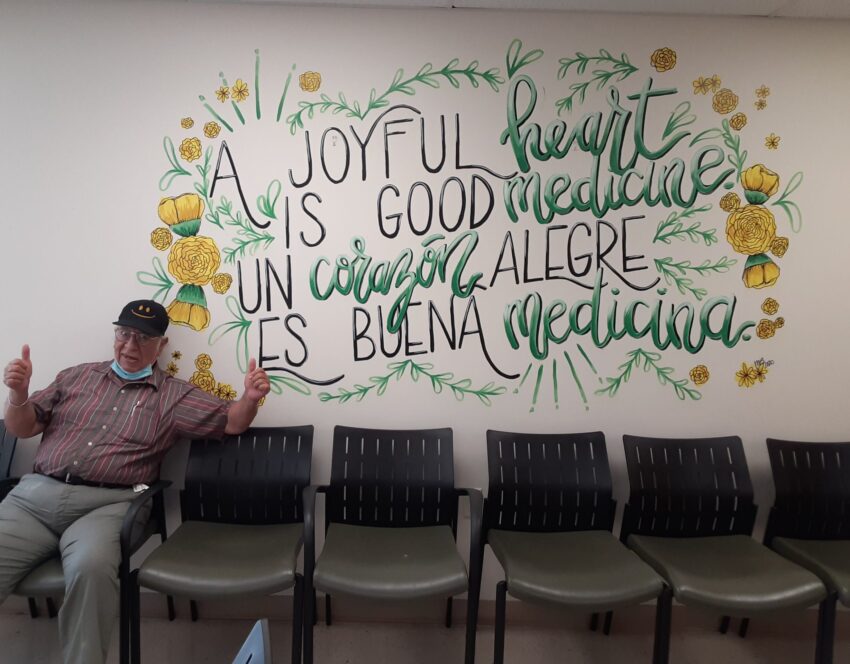
Share On Social!
The drive to Guadalupe Clinic from rural Coffeyville, Kansas, was just over two hours, but it felt like a lifetime for the Pascual family.
As their older vehicle putted along the back roads, the Pascuals anxiously awaited much-needed medical care. With no health insurance and limited income, getting basic healthcare was a constant struggle.
Finally, the family’s car turned onto St. Francis Street in downtown Wichita, Kansas. Their destination was nestled between two scrap metal yards and surrounded by railroads and small housing lots.
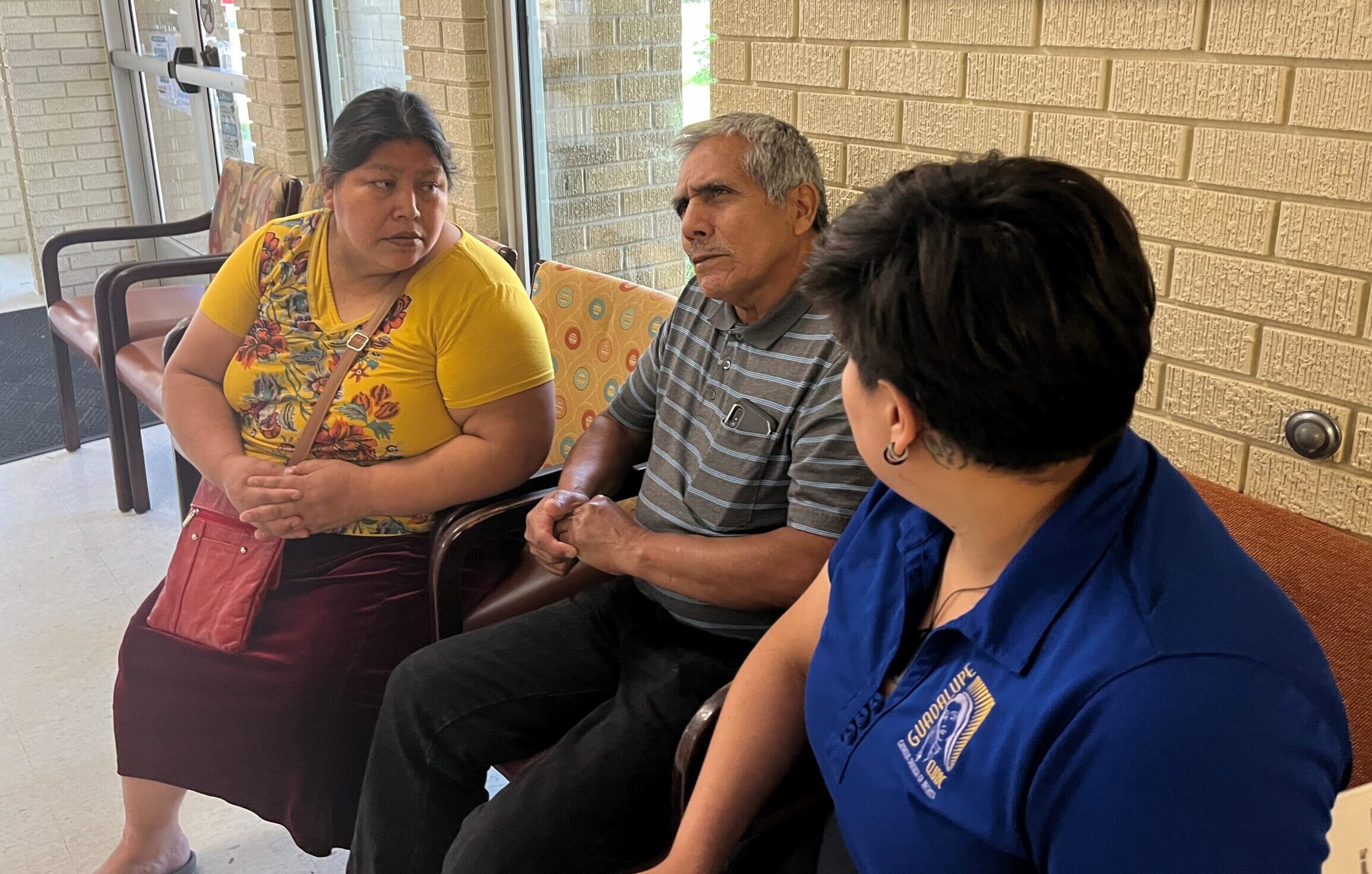
Pulling into the parking lot, the Pascuals breathed a sigh of relief.
They had safely reached the Guadalupe Clinic and were welcomed with open arms – no questions asked.
For families like the Pascuals, Guadalupe Clinic in Wichita, Kansas, is a haven where they can get medical care regardless of their background, ability to pay, and immigration status, said Leticia “Lety” Dominguez, LPN, clinic coordinator.
“It’s a population that other places might forget about, and we’re here with open doors to help them out, especially the uninsured, who need help the most,” Lety said.
A Healthcare Haven of Hope
With two locations to choose from, people of all backgrounds receive medical care at the Guadalupe Clinic, but undocumented Latinos make up a majority of the two clinic’s patients.
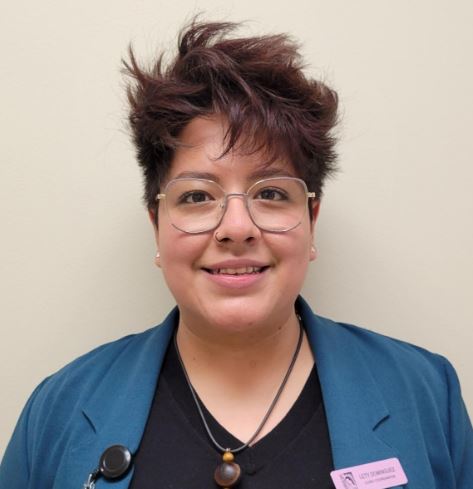
The patient population is 75% Hispanic, 5% Black, less than 1% Asian, and 27% white, said JV Johnston, executive director of the Guadalupe Clinic.
“What they all have in common is they have no insurance of any kind, including Medicare and Medicaid, and they’re living within 200% of the poverty line,” JV said. “58% of our total patient population are Spanish speaking only, and over half our patients are undocumented. So, all our medical staff is bilingual – they pretty much have to be.”
Although the Guadalupe Clinic primarily serves groups in Wichita (18% Latino), families like the Pascuals may come from hours away to receive competent healthcare in a place where they feel welcome.
“They would rather come to us to get the help that they need because of the language [challenges] and just how comfortable they feel,” Lety said. “They know that they’re in a safe place where they won’t get judged for their immigration status.”
Services at the Guadalupe Clinic, including medication and vision care, are completely free.
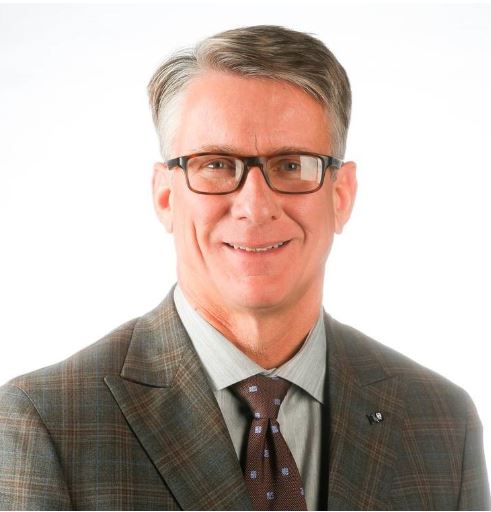
The clinic is not a federally qualified health center (FQHC), which typically charges patients for services on a sliding scale.
“Our yearly budget runs completely on donations and grants,” JV said. “So, every year that that clock starts over, and we must raise that money again.”
The return on investment at the Guadalupe Clinic is quite impressive – for every dollar donated, the clinic provides $3.40 worth of health and vision care to over 10,000 patient visits a year.
Between the two clinic locations, 62 medical volunteers make this momentous feat possible.
Medical volunteers include physicians, physician assistants, nurse practitioners, and medical students.
The two clinics also have promotoras de salud who help patients, especially Latinos, navigate their healthcare journey. This assistance includes addressing non-medical drivers of health (NMDoH) – or non-medical factors that impact health – by connecting patients with community resources for food, housing, utility assistance, childcare, and more.
“We have direct access to community agencies in town that can help [with NMDoH],” JV said. “We can get our patients served quickly.”
Eliminating Challenges to Healthcare
In addition to language challenges and the fear of their immigration status being revealed, Latinos face many other challenges in accessing healthcare.
For instance, many Latinos in Wichita work in construction, housekeeping, and the restaurant business, which may not provide paid sick leave. Therefore, missing work to go to the doctor sometimes means a smaller paycheck.
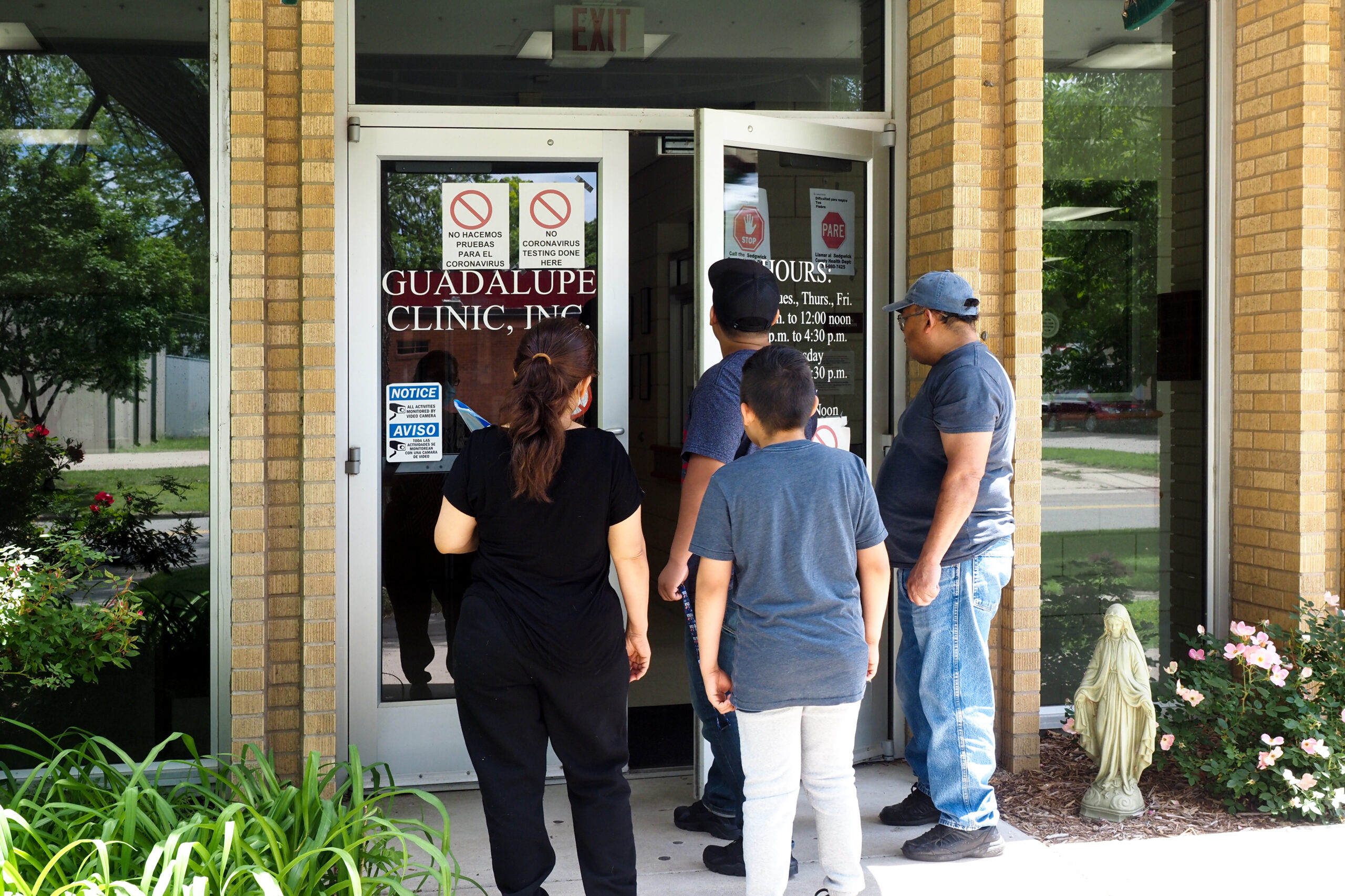
Luckily, the Guadalupe Clinic is open late on weeknights and on Saturdays. This happens with the help of the JayDoc Community Clinic – medical students and volunteers from the University of Kansas.
“They’ll come in and diagnose the patient or ask the patient questions under the watchful eye of a preceptor – a physician,” JV said. “Once they do that, they’ll come back and talk to the physician about the patient, what they think is wrong, and the physician will ask them some follow up questions, which is a great learning opportunity for the students. And then they’ll both go in and see the patient again.”
While these volunteer opportunities are part of the students’ curriculum, it also exposes them to patients who might not have health insurance and are more vulnerable to health differences.
Additionally, the clinic’s extended hours and flexible same-day appointments keep people out of the emergency room, which saves patients and hospitals time and money.
Transportation is another major healthcare barrier for Latinos. If patients can’t drive to the clinic, a lot of them will walk, ride their bike, take the bus, or ask a friend for a ride. If those options aren’t possible, the Guadalupe Clinic can arrange Lyft rides for patients.
Between the two clinic locations, the Lyft bill is about $600 a month.
“Providing transportation for patients was a great addition [to clinic services] because we were encountering patients who wanted to get healthier, however, they struggled to get to the clinic,” Lety said. “For some of those patients, it was vital for them to be here to get better grip on their health. Lyft has helped tremendously with those patients.”
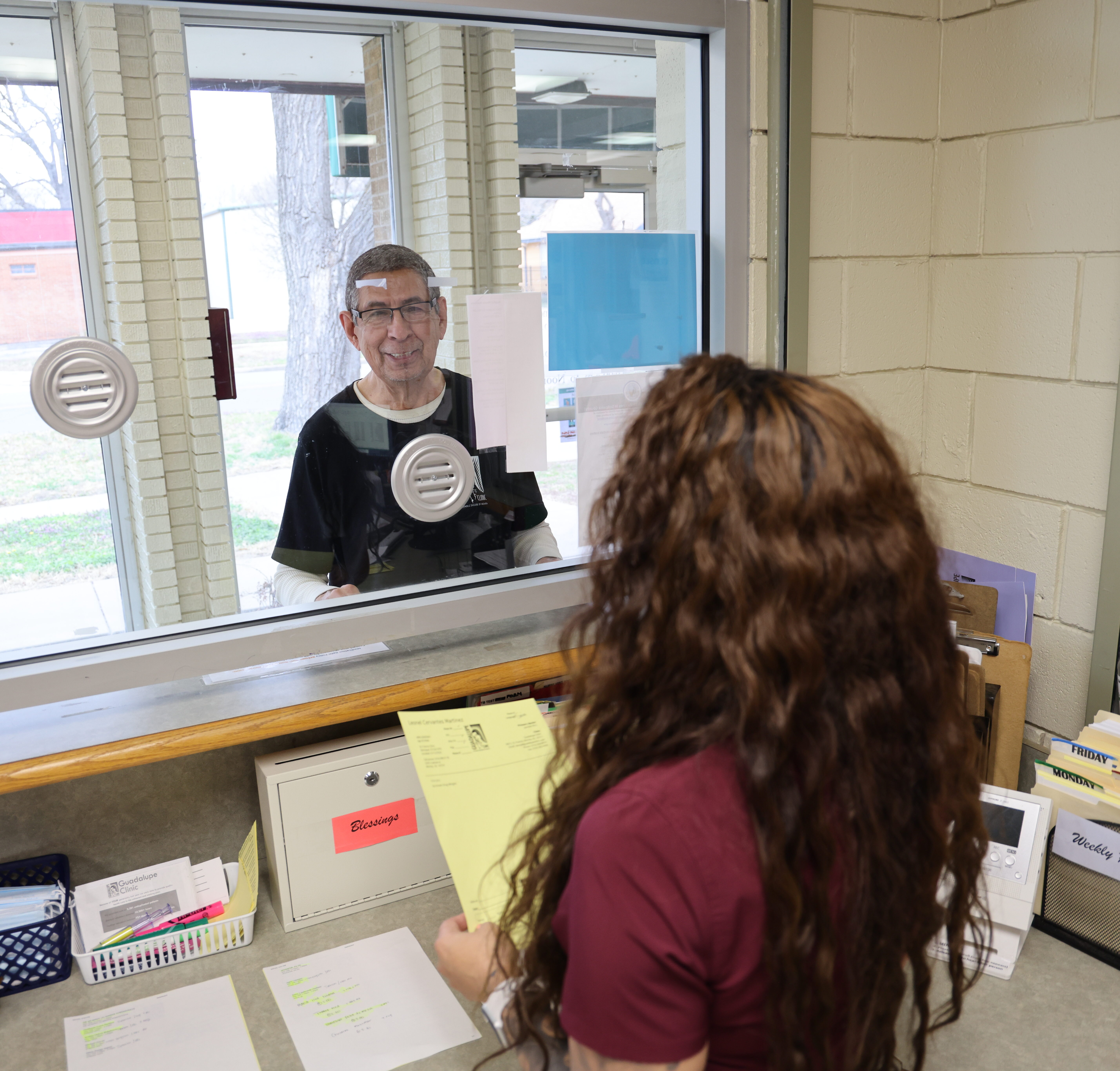
Likewise, patients who can’t pick up their medications from the clinic can have their prescriptions delivered to their home. This service is especially important for patients who are bedridden and don’t have access to reliable transportation.
In addition, all medications supplied to patients through the Guadalupe Clinic are free, thanks to community and pharmaceutical company partnerships. This service is critical for many Guadalupe Clinic patients who suffer from chronic conditions that require expensive medication.
For instance, over half of the clinic’s patients have diabetes and may require regular insulin, JV said. The out-of-pocket price for a single vial of insulin can reach over $1,000.
“We also have patients who have Hepatitis C, and their medications are $10,000,” Lety said. “Luckily, we are able to get them the medication they need with these programs.”
Further, if a patient needs treatment from a specialist, a team of advocates supports them every step of the way.
“We try our best to help our patients,” Lety said. “For example, cancer centers order a lot of labs, right? Patients must get labs done to see how their medication is working and how their kidneys are functioning. Instead of our patients going through the cancer center’s lab and potentially being billed, we process those labs at no cost. Every penny counts for our patients and if we can help them with $50 or $100, hey, we’ll do it.”
“It’s challenging to find good places to take charity care, but we try our best every day.”
Stepping Up in Times of Need
Like other low-income communities, COVID-19 impacted the Latino population of Wichita.
One reason for this is lifestyle. With many of Wichita’s Latinos living in multi-family households, it can be difficult to quarantine, allowing COVID-19 to spread like wildfire.
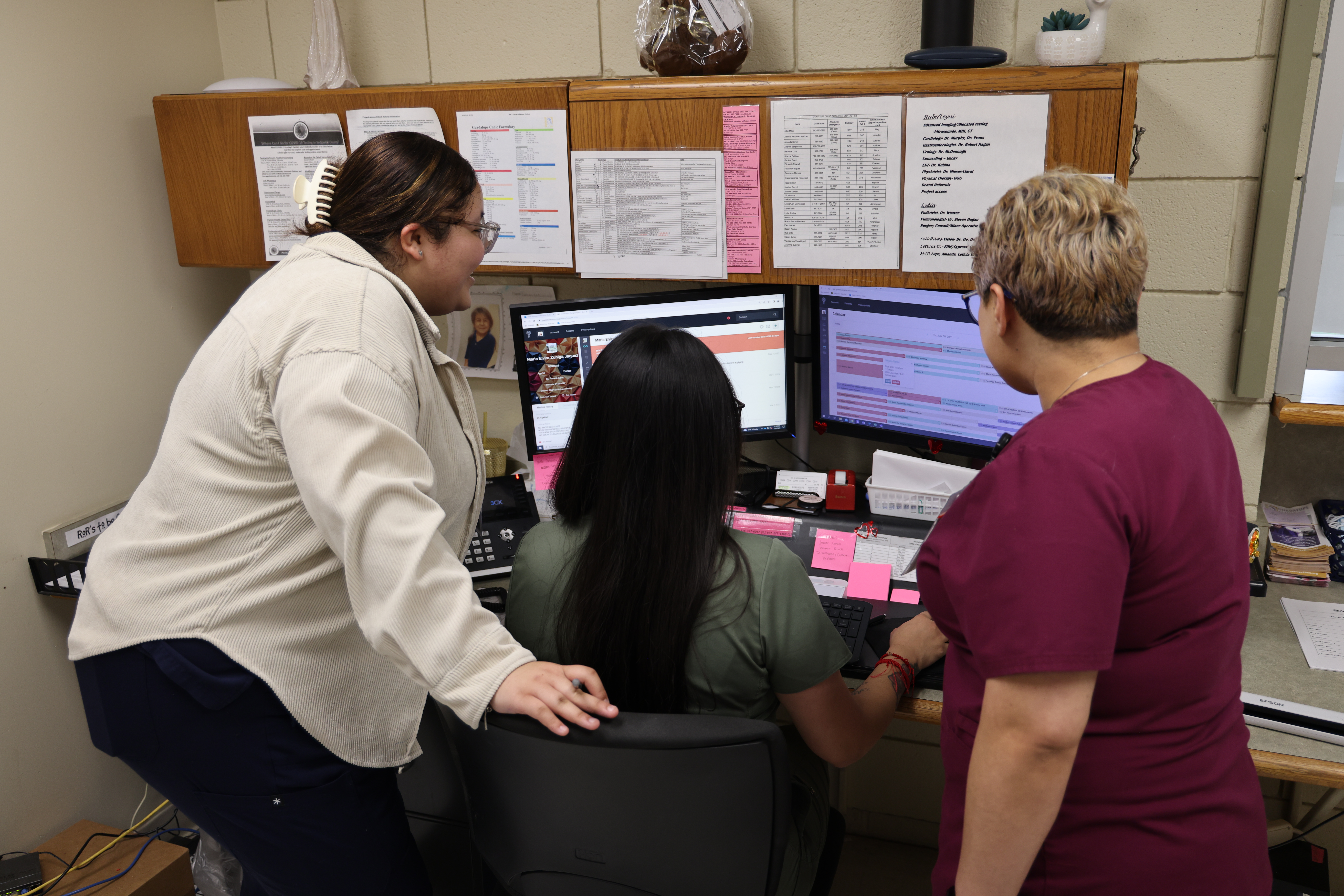
Lety said one of the most devastating effects of the pandemic for Wichita’s Latinos was job loss.
“That was very sad to see, especially because we were all dealing with COVID-19, but yet our patient population was getting hit the most because of their [immigration] [situation],” she said.
Further, Latinos struggled nationwide to find a safe place to receive the COVID-19 vaccine. Luckily, the Guadalupe Clinic was there in a critical time of need.
“About 90% of patients only spoke Spanish, and you can imagine they don’t want to go to a government facility with the fear of ICE,” JV said. “Our name Guadalupe gets a lot of trust [in Latinos].”
Through partnerships with the Increase the Reach program and the Sedgwick County Health Department, the clinic was able to administer around 6,000 COVID-19 vaccines.
The good news is the number of cases and tests being administered at the clinic have greatly decreased since the height of the pandemic.
“Last month, we only did 10 COVID-19 tests, and we were doing hundreds every day back when, so it’s really decreased a lot. So hopefully [the pandemic] is behind us,” JV said.
Clinic Growth: The Vision Department and Translator Certificate Program
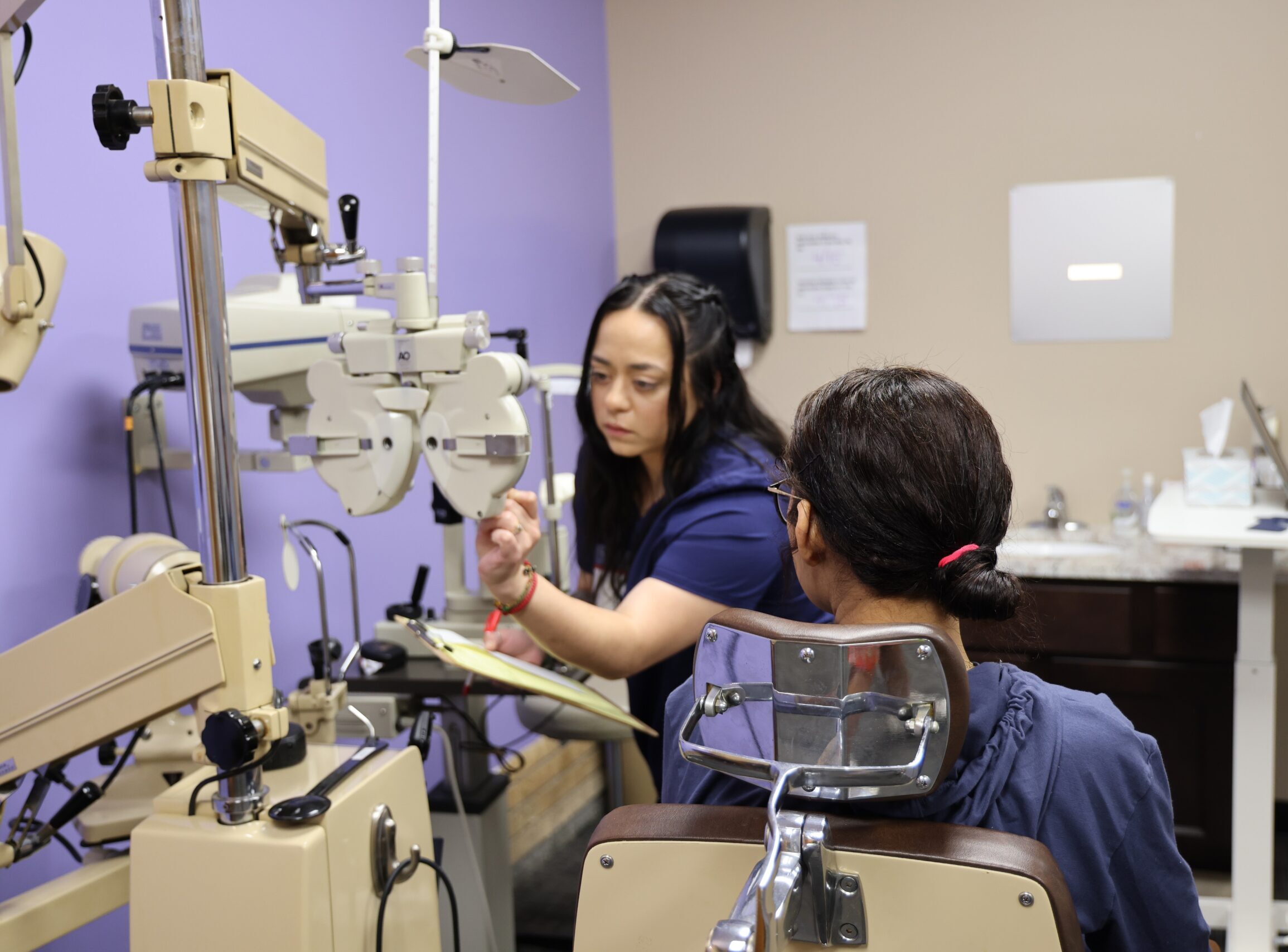
In October of 2022, the Guadalupe clinic began providing eye care through a vision department staffed by volunteer optometrists.
“Vision is the last thing that our patients think about, and they are very appreciative,” Lety said. “We have patients that even cry when they get their glasses because of how happy they are being able to see and finally getting that help.”
Soon, the Guadalupe Clinic staff will also get the opportunity to grow their professional skill set through a partnership with the Wichita State University language department.
“We partnered with them to provide service starting this fall for clinic staff to earn a professional interpreter certificate in Spanish,” Lety said. “This will bring a lot of vital benefits to the clinic to ensure that the correct information is given to our patients. If information isn’t correctly transcribed to the provider, the patient can easily die or be misdiagnosed.”
Not only does this partnership emphasize the importance of eliminating language challenges, but it also highlights the need for diversity in healthcare.
While Latinos make up 19.1% of the United States population, they represent just 5.3% of the registered nurse workforce and only 6% of U.S. physicians.
With many Latinos facing unfair treatment and health differences, having a workforce that looks like the rest of the US is crucial.
“It’s important [for patients] to feel heard,” Lety said. “I’ve had a lot of patients that come from other clinics that say, ‘We really like it here because everybody speaks Spanish and in other clinics, I felt like I wasn’t being heard. I felt like I was just another number.’”
Lety, who was born in Mexico, migrated to the U.S. with her parents when she was 7 years old. As a child, she often went to clinics that didn’t treat Latino families like hers with respect.
“I grew up seeing that sometimes nurses or the staff are not the nicest,” Lety said. “You don’t know what that patient is going through. Smiling at them and saying good morning might make their day.”
Lety added that a personal and staff goal at Guadalupe Clinic staff is to make all patients feel welcome and receive the care they need, regardless of who they are or where they come from.
“Lety has just created a wonderful atmosphere, a very positive atmosphere,” JV said. “When she came here, she just had such a wonderful skill set of creating a team that embraces the mission, embraces the patients, and is really committed to giving great quality and continuity of care.”
JV and Lety are thankful for the many volunteers who work together to make the Guadalupe Clinic’s accomplishments possible for the sake of families like the Pascuals.
“We couldn’t do anything without our volunteers, we all work as a team,” Lety said. “I think that’s what makes the clinic run more smoothly is we all know the population that we’re serving and the struggles that they’re facing. We know we need to [speak up] for them.”
Exploring the Health of Your Community
Where you live can have a big impact on your health.
In fact, our health is influenced by a variety of non-medical factors, such as the conditions in which we are born, grow, live, work, and age. These conditions are known as non-medical drivers of health (NMDoH).
Addressing NMDoH is key to improving health for Latinos and all people.
Fortunately, healthcare systems and clinics, like Guadalupe Clinic, are taking extra steps to address patients’ NMDoH issues in addition to medical care.
Nemour’s Children Health and Federally Qualified Health Centers have begun NMDoH screening. This means that when patients come to medical appointments, they are asked questions that help healthcare providers identify their needs and refer patients to local resources for aid.
“NMDoH screening is an important tool to improve health outcomes among Latinos and other groups,” said Dr. Amelie Ramirez, director of Salud America! at UT Health San Antonio, who is leading a new program to promote health improvement with support from the American Cancer Society.
You can also help create changes to address NMDoH before they reach the doctor’s office.
Start by exploring your county’s Report Card.
See how your county is doing on a variety of health-related conditions like housing, transportation, and healthcare.
Compare your results to other counties across the state and the nation. Share your results with organizations, health coalitions, and city officials to speak up for change in your area.
Explore More:
AccessBy The Numbers
142
Percent
Expected rise in Latino cancer cases in coming years
This success story was produced by Salud America! with support from the Robert Wood Johnson Foundation.
The stories are intended for educational and informative purposes. References to specific policymakers, individuals, schools, policies, or companies have been included solely to advance these purposes and do not constitute an endorsement, sponsorship, or recommendation. Stories are based on and told by real community members and are the opinions and views of the individuals whose stories are told. Organization and activities described were not supported by Salud America! or the Robert Wood Johnson Foundation and do not necessarily represent the views of Salud America! or the Robert Wood Johnson Foundation.



